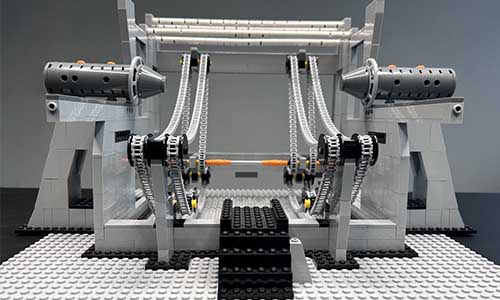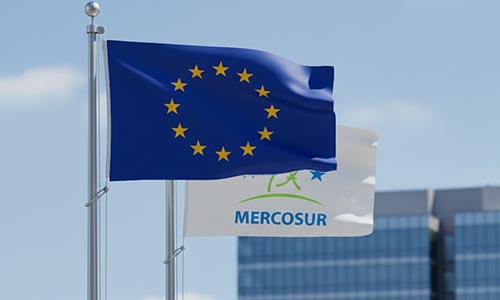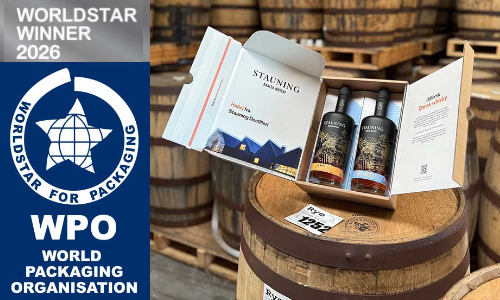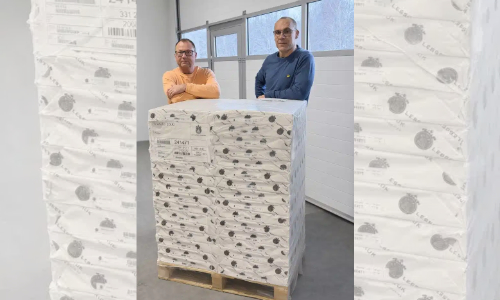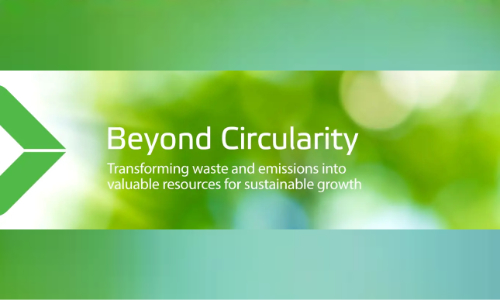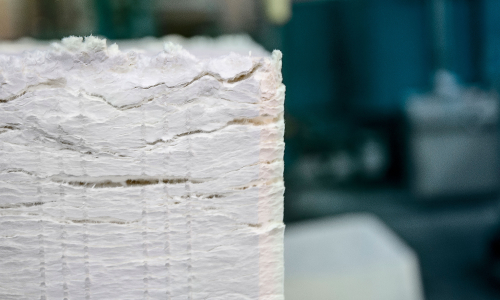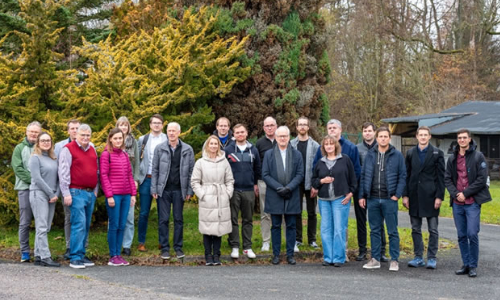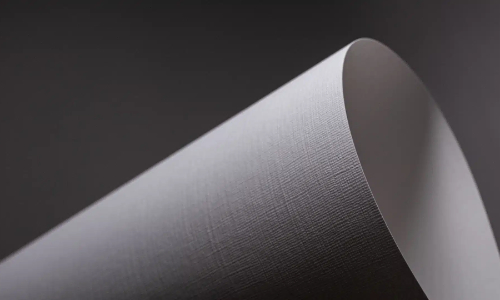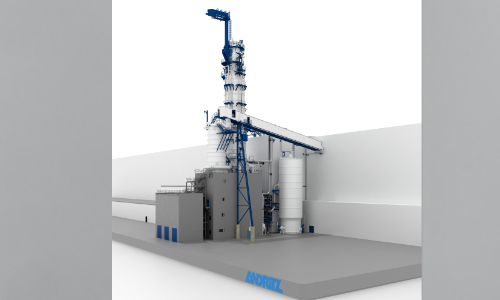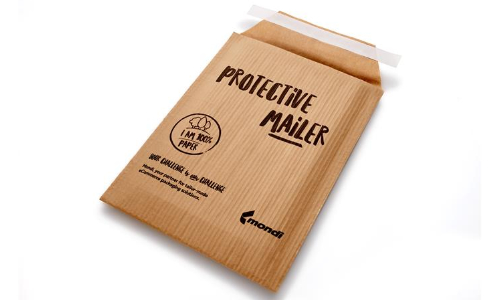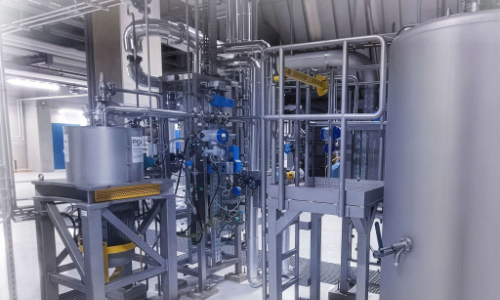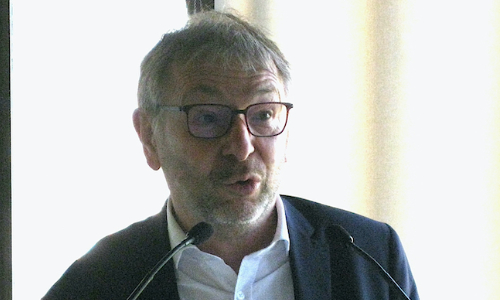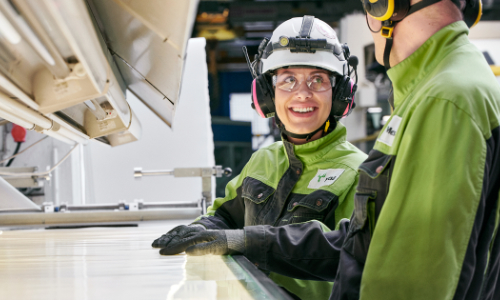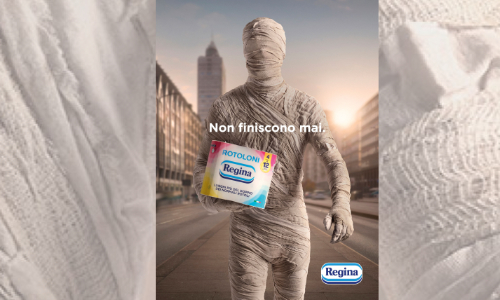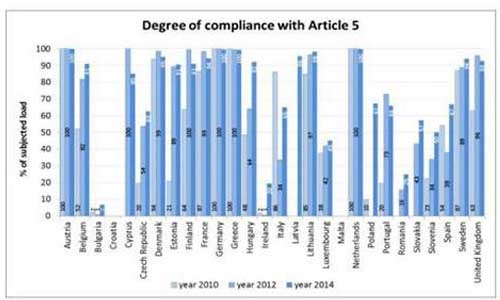
Securing a clean water supply will be one of the greatest challenges our world faces in the next century.
Despite the fact that water treatment plays a central role in efficient and sustainable water use, much of the current European legislation on water treatment dates from the 1990s. Furthermore, the majority of Europe’s water treatment infrastructure was designed and commissioned decades ago. Since then technology has advanced significantly, enabling improvements in water treatment efficiency of as much as 20%. In a recently published position paper, Kemira calls on the EU to address these challenges from a regulatory perspective in order to ensure that future needs are met.
The Urban Waste Water Treatment Directive, a central instrument of EU water legislation and a tool to improve water treatment, is currently under review. At present, water legislation is not implemented consistently in EU member states, resulting in potential risks to both the environment and human health. It is Kemira’s position that the requirements of the Directive must be implemented fully and equally across all member states.
Kemira’s proposal addresses many aspects of this challenge : full implementation of requirements, utilization of technology, tightening the pollutant limit values, and including new emerging pollutants in the legislation, as well as putting the tools in place for public procurement to drive innovative and sustainable solutions.
Achieving equality is a first step
In some countries water treatment is much more ambitious and efficient than the Directive requires, while in others there are significant implementation gaps. Kemira recognizes an urgent need for full and equal implementation of the Directive’s requirements. For example, it is our opinion that the excessive transitional periods for implementation granted to new member states are unacceptable. Environmental protection should not be a subject for negotiation. Kemira firmly believes that it is the fundamental right of each and every EU citizen to have access to a clean water supply, regardless of their geographical location.
In addition to more efficient implementation of the Directive in its current form, there is also other low-hanging fruit in the form of existing solutions that can and should be implemented in order to enhance wastewater treatment. One of these solutions relates to climate change and the increasing frequency of extreme weather conditions. Storm-water overflows are a major concern as they often contain untreated wastewater from both municipal and industrial sources, resulting in pollution and the spread of pathogens and diseases. Cost-effective solutions for the safe disinfection of overflows already exist and should be made mandatory at EU level.
“Lack of technology is not a barrier. Treatment methods already exist and should be adopted. With the technology available today we can achieve much better treatment results without increasing costs,” says Riikka Timonen, Marketing Director at Kemira.
Political will should favor sustainable means
Further optimization of the Directive is easy to achieve. The limit values of different pollutants in the current Directive are not strict enough, and limit values in water discharges, in particular for biological oxygen demand (BOD), chemical oxygen demand (COD), total suspended solids (TSS), and phosphorus (P), should be tightened.
“It is not a question of ability, but of political will. For example, the current limits for phosphorus – 2 mg, or 1 mg of per liter of water depending on the population – should at minimum be halved. Nearly all wastewater treatment plants in Sweden and Finland achieve a maximum level of 0.5 mg P/l, and many plants have even stricter limits in place,” Timonen says.
It is also Kemira’s opinion that emerging pollutants such as pharmaceuticals, endocrine disruptors, and microbiological contaminants should be included in the legislation. “There are already solutions available to address these pollutants and the Directive needs to be updated accordingly,” she emphasizes.
Public procurement should be the driver for a more sustainable future
Kemira is calling for regulation that fosters innovation and supports sustainability-driven public procurement for water treatment. Rather than having a short-term focus on securing the cheapest unit price, public procurement processes should instead favor innovative and sustainable solutions that can reduce total cost of ownership.
“The European Commission needs to develop and publish clearer and more binding guidance on how member states should implement the Public Procurement Directive in national legislation. this would create a win-win situation for all, with industries and nations collaborating to invest in sustainable solutions together,” Timonen concludes.
Background
The EU is currently undertaking a major review of the Water Framework Directive and associated legislation, including the Drinking Water and Urban Wastewater directives. In response to this, Kemira has produced a position paper around the topic, calling for equal implementation of regulation across the member states as well as for higher utilization of technological advancements in this sector.
EU’s public consultation phase is now completed and the validation work continues. The finalization of the directive evaluation is expected by September 2019.


